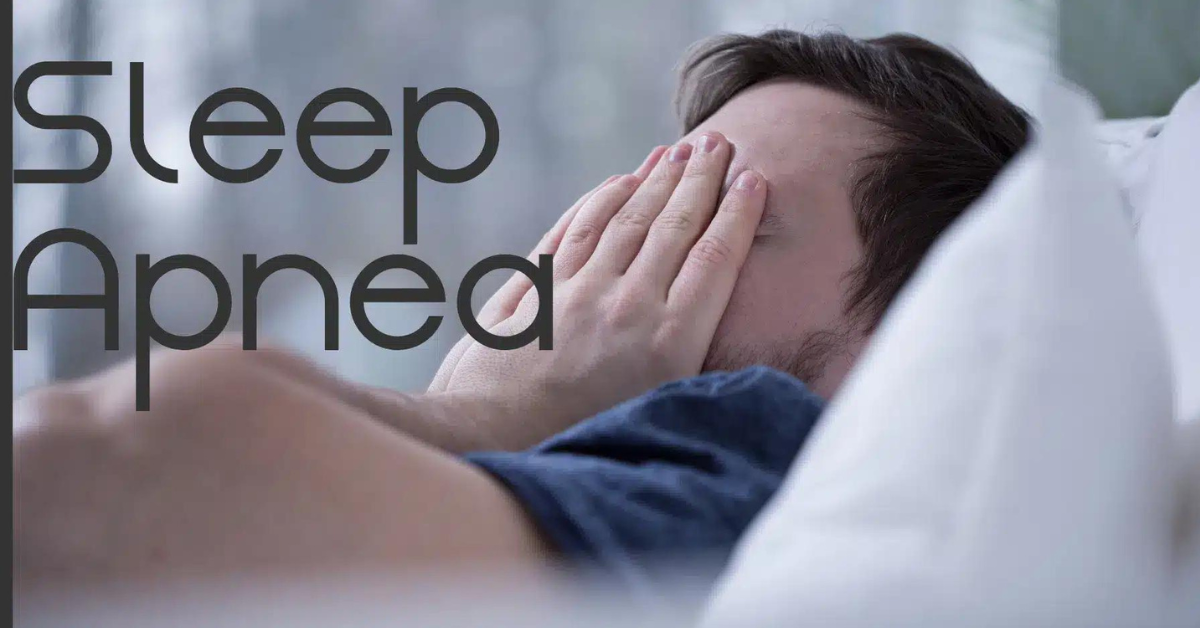
What Is Sleep Apnea?
In general, sleep apnea is a condition that causes an individual to quit breathing while sleeping. It’s divided into three types:
- Obstructive sleep apnea happens when your throat muscles relax too much or your jaw is misaligned, obstructing your airways and causing your tongue to do so, as well.
- Central sleep apnea occurs when your brain doesn’t send your central nervous system signals to breathe.
- Mixed sleep apnea, as the name suggests, is a combination of both.
Sleep Apnea Causes
Obstructive sleep apnea is highly associated with obesity, as excess weight often means the neck is enlarged, but other causes of obstructive sleep apnea include:
- A narrow throat
- Hypothyroidism
- Hormone imbalance
- Allergies and other conditions that congest airways
- Alcohol
- Smoking
- Jaw misalignment
- Tongue tensing up and blocking the throat
Because central sleep apnea occurs due to a malfunctioning nervous system, many of its causes are other medical conditions and environmental factors such as:
- Cheyne-Stokes breathing, an irregular breathing pattern that’s often the result of a heart attack or stroke
- Parkinson’s Disease
- Alzheimer’s
- Amyotrophic lateral sclerosis or ALS
- Kidney failure
- Heart disease
- Opioid medications
- High altitudes
Sometimes, there is no clear cause for central sleep apnea. This condition is known as idiopathic or primary sleep apnea.
Sleep Apnea Symptoms
While there are different types and causes of sleep apnea, they share common symptoms. Some are only noticed by another person, like a spouse or roommate, while others are very apparent to someone that might be suffering from sleep apnea. They include:
- Loud and frequent snoring
- Instances of no breathing (common for central sleep apnea)
- Gasping while asleep
- Frequently waking up with a dry mouth or headache
- Insomnia or difficulty falling and staying asleep
- Grogginess during the day, known as hypersomnia
- Irritability and difficulty concentrating
These symptoms don’t necessarily mean you have sleep apnea, so it’s important to work with your doctor. Sometimes, difficulty sleeping is due to other medical or environmental conditions.
Ignoring Sleep Apnea Symptoms
If left untreated and undiagnosed, sleep apnea is potentially fatal. It may also cause or make life-shortening conditions worse. Some of the most common health problems associated with untreated sleep apnea include:
- High blood pressure
- Heart disease
- Type 2 diabetes
- Asthma
- Acid reflux
- Memory loss
- Depression
By working with your doctor, it’s possible to avoid or manage many of these conditions.
Sleep Apnea Diagnosis
To determine if you have sleep apnea, your doctor may refer you to a specialist to rule out other causes of nighttime breathing troubles. To rule out blockages, you may be referred to an ear, nose and throat specialist or an allergist. If central sleep apnea seems likely, a cardiologist or neurologist may be able to diagnose the problem.
A doctor or sleep specialist might begin diagnosis by giving you a home sleep monitoring device. By affixing this device to your body, it will record heart rate, blood oxygen levels and breathing patterns.
If no irregularities are found, your doctor may prescribe a nocturnal polysomnography. You’ll likely spend at least one night in a hospital or other medical center where you can be observed and your vitals monitored. Specialists will monitor your lung, heart and brain activity as well as blood oxygen levels. They will also observe your breathing patterns and body movements.
Sleep Apnea Treatments
After determining the cause of your sleep apnea, a doctor will prescribe a number of therapies and treatments based on the severity and nature of your problem.
The most common therapy is continuous positive airway pressure, or CPAP. With this kind of therapy, you’ll wear a mask over your nose that uses a machine to increase air pressure in your airways. If a particular CPAP device doesn’t work for you, there are a number of other similar devices available.
Other therapies include supplemental oxygen, oral devices that keep your throat open, ventilation to regulate breathing patterns and treatment for associated medical conditions.
Sleep Apnea Surgeries
If therapies aren’t working or your sleep apnea is severe, doctors might recommend surgery. Throat tissue removal and shrinkage, nerve stimulation and tracheostomies (creating a new airway) are drastic but very effective sleep apnea treatments.
Neuromuscular Dentistry
While sleep apnea appears to be impacted by the central nervous system and airways, it can also be the result of dental issues. If this is the case, your doctor might refer you to a neuromuscular dentist for dental care.
This field focuses on the movement of the jaw and any parts attached to it, such as muscles like the tongue. Fortunately, advancements in this field have created sleep apnea treatment options that are quieter, more convenient and less drastic than other procedures.
For sleep apnea resulting from jaw misalignment, a mandibular attachment device, or MAD, lets the jaw ease forward as you sleep. This allows the soft tissue in your throat to remain clear of air passages. Like a retainer, a dentist makes a mold of your mouth so you can wear a MAD at night.
The tongue is also a culprit known for causing sleep apnea. It can rest in such a way that it blocks your throat during sleep. To prevent this, a dentist might prescribe a plastic device that rests at your lips with an attachment that holds your tongue in place.
Sleep Apnea Solutions in Simpsonville and Greenville, South Carolina
At Bynum Aesthetic Dentistry, a practice specializing in neuromuscular dentistry and sleep apnea diagnosis in Simpsonville, SC, we can help you come up with a plan for a better night’s sleep. Whether you require dental devices, therapy or other sleep apnea solutions, contact us today for a consultation. From Greenville to Laurens and Anderson counties, we’re happy to help our community get a better night’s rest.

